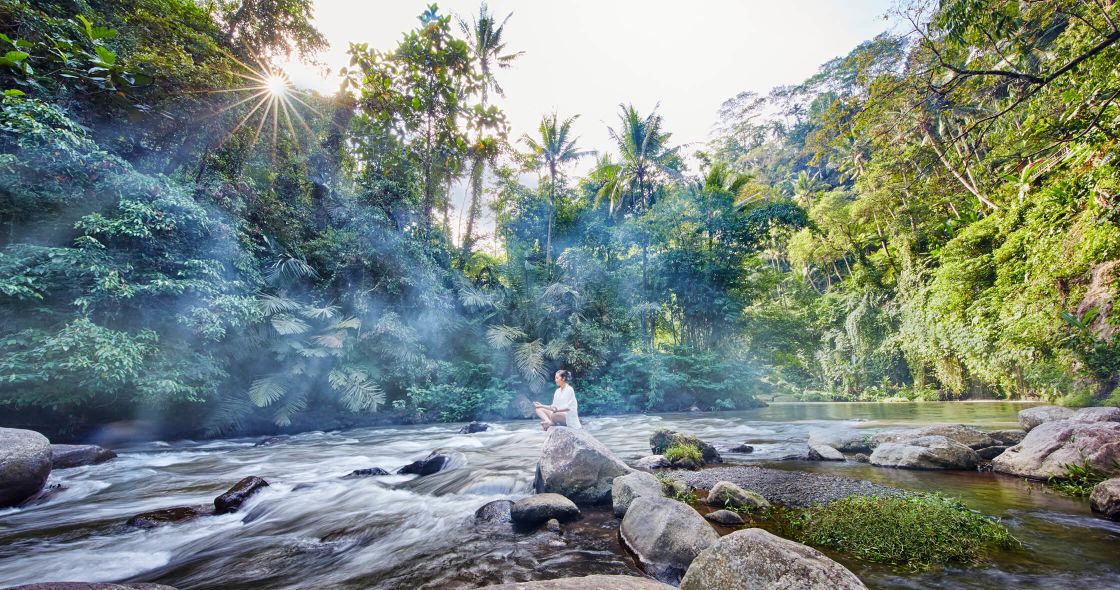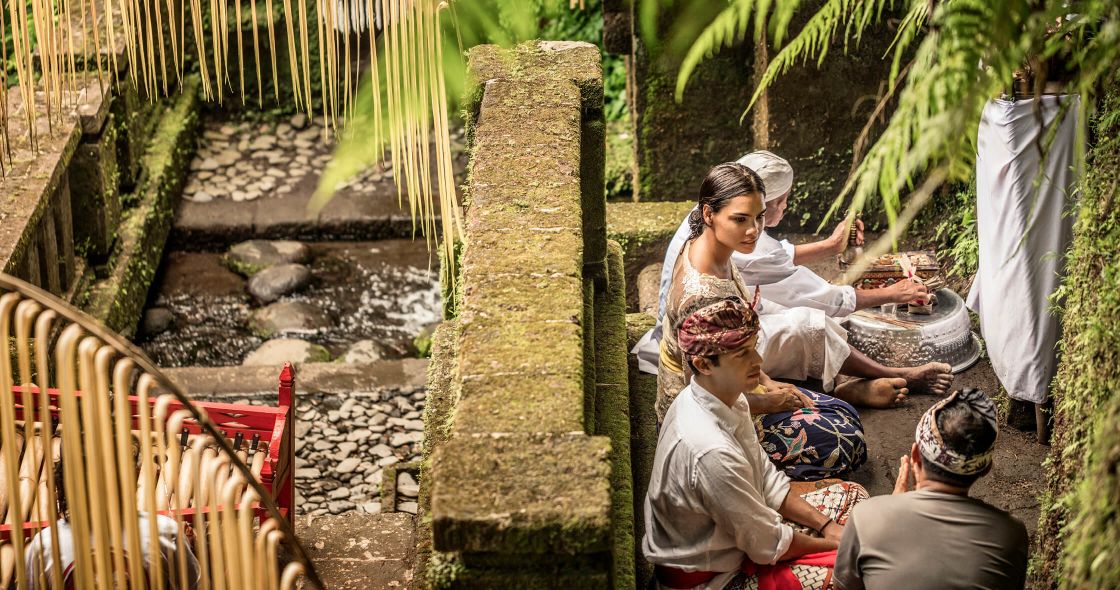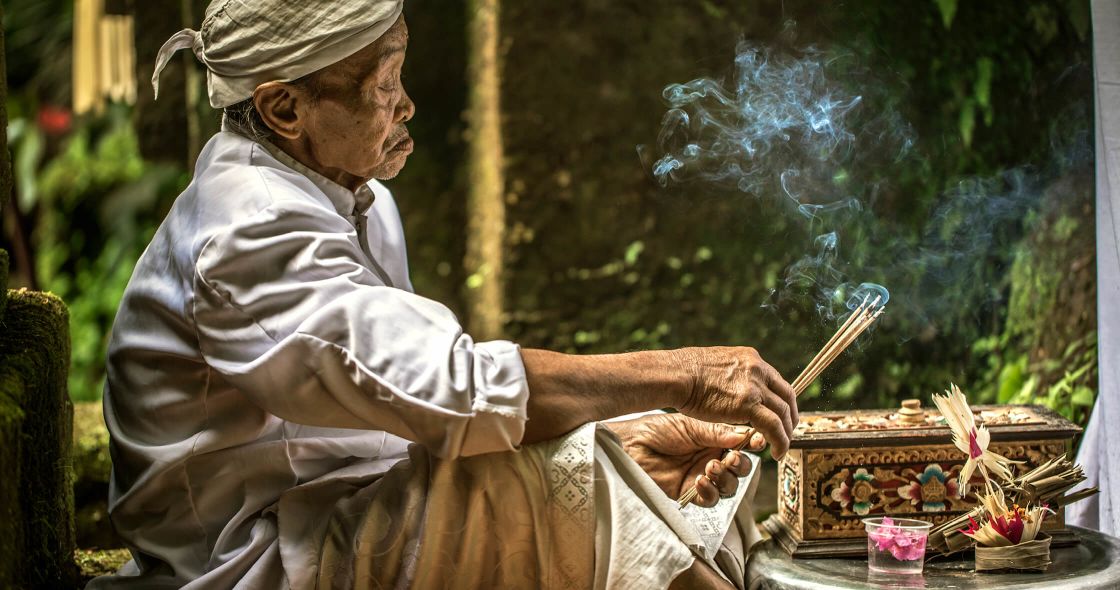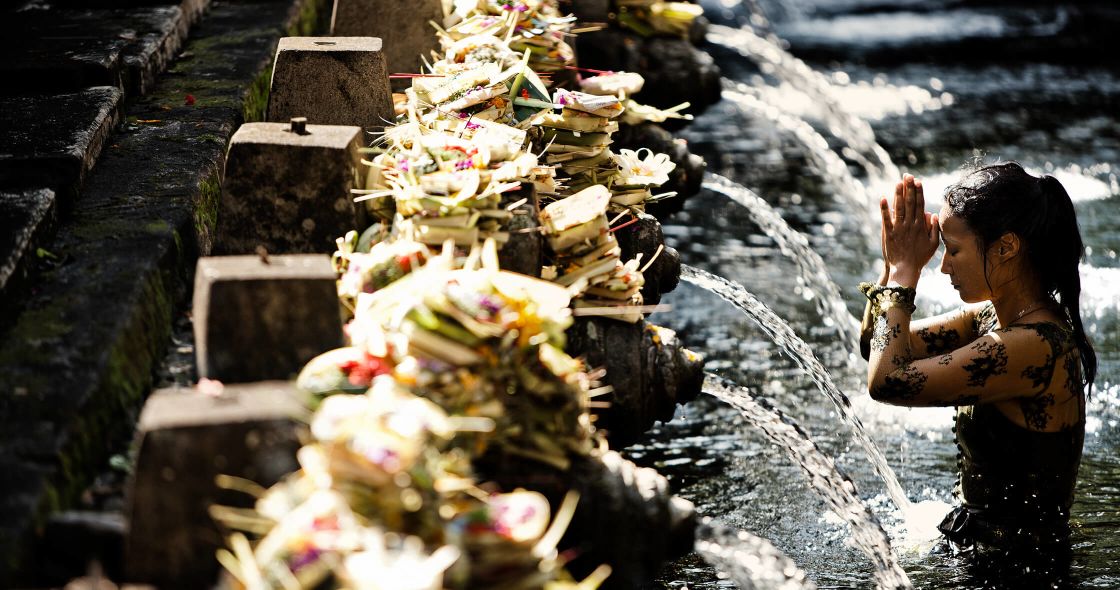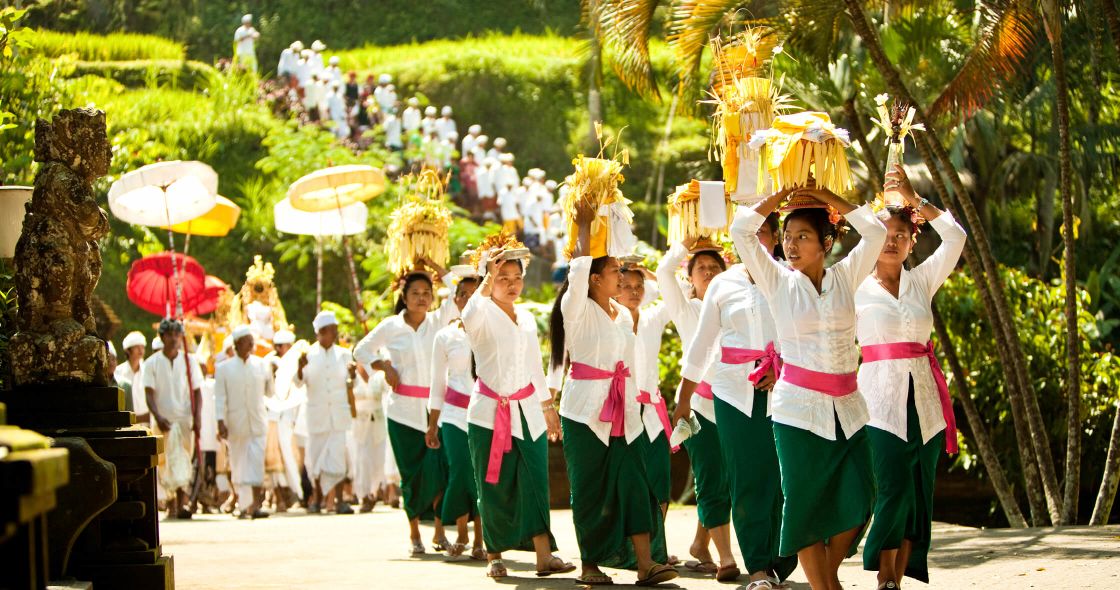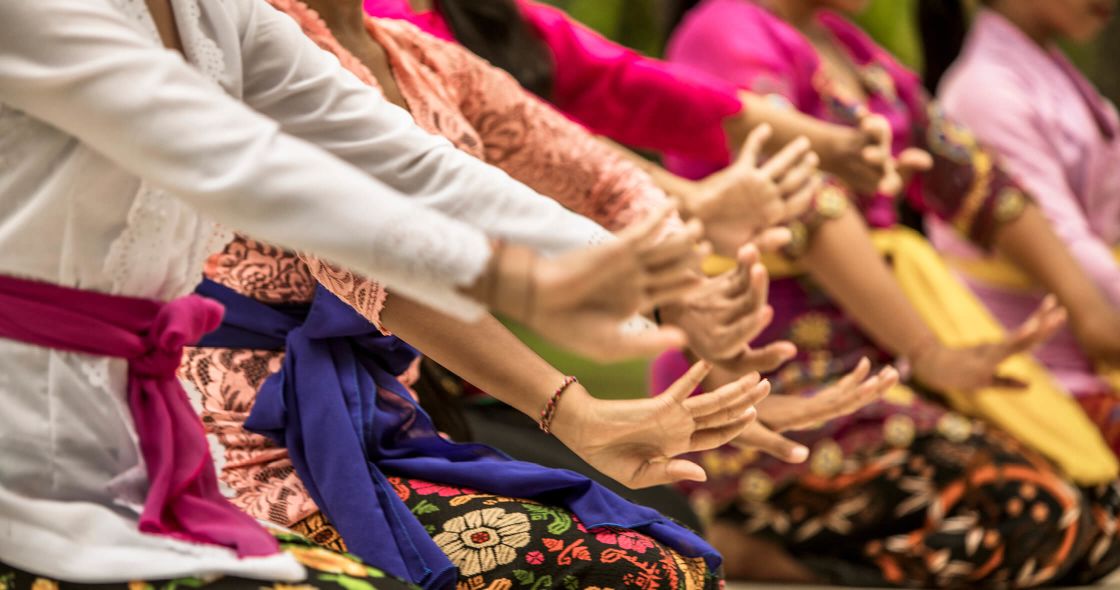
Nyepi is the Hindu celebration of the New Year — and one of the most sacred days in the Balinese religious calendar. A day dedicated to complete silence, the lights are turned low, movement is minimal, and self-reflection reigns supreme.
Also known as the Day of Silence, Nyepi is devoted to meditation and introspection and is ushered in by traditional parades in a blaze of vibrant colour and noise. On the eve of Nyepi, Ogoh-Ogohs — monstrous effigies that represent evil spirits and corrupting influences — are carried through towns and villages in a lively procession, before being burnt as a symbol of purification. As the final cinders dissolve into ash, Nyepi begins at dawn the next day. Bali falls into meditative repose, traffic grinds to a halt and silence blankets the island. This is especially powerful in the evening, when the stars come up, and Bali feels like the place that time forgot.
The history of Nyepi stretches back nearly two thousand years, to the foundation of the Saka Hindu dynasty by King Kanishka of India in 78 AD. Hindu Brahmins brought the tradition to Bali. The silence is regarded as cleansing, warding off any final traces of the evil spirits. You can experience this unique cultural event at COMO Uma Canggu — joining the traditional ‘ogoh-ogoh’ procession of effigies on Nyepi Eve, followed by a Sound Journey led by Josephine Costain and relaxing Qi Gong classes by Peter Caughey at our Harmony in Silence COMO Journey this March 10th to 12th.
Also known as the Day of Silence, Nyepi is devoted to meditation and introspection and is ushered in by traditional parades in a blaze of vibrant colour and noise.

Other ways to embrace the sound of silence
This year in 2024, Nyepi falls on March 11th. While all activities are prohibited on the day itself, you can design your holiday around the island-wide event, by deepening its effects — and the power of quiet — with guided meditation and more. Just you and nature. No tech. No work. No interruptions. The spirit of Nyepi, of self-reflection, enjoyed beyond the festival itself.
Stay at any one of our Bali resorts, or all three for the ultimate in Balinese cultural immersion: COMO Shambhala Estate, COMO Uma Ubud, or COMO Uma Canggu.

